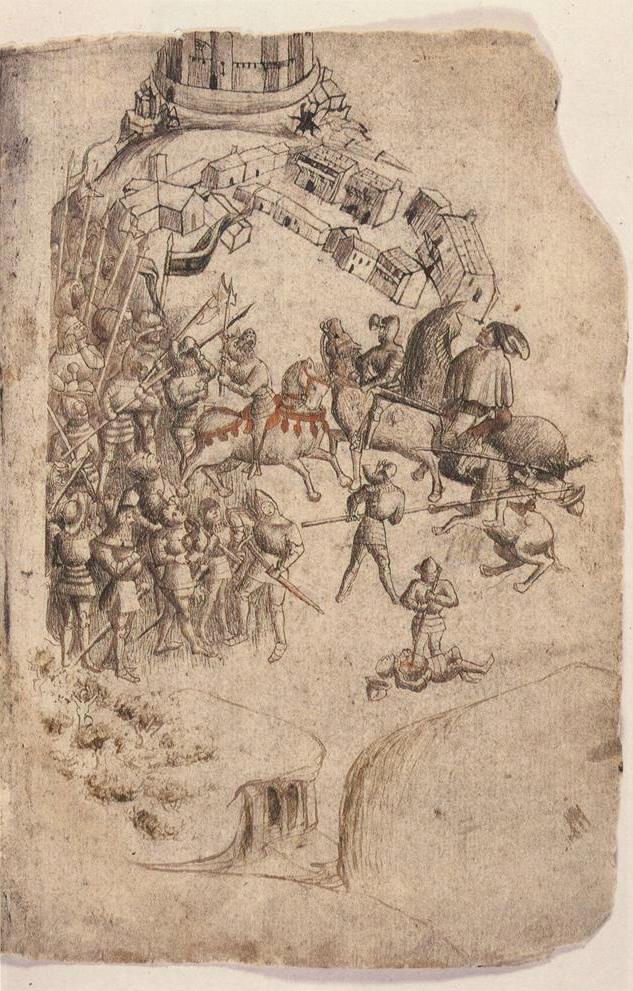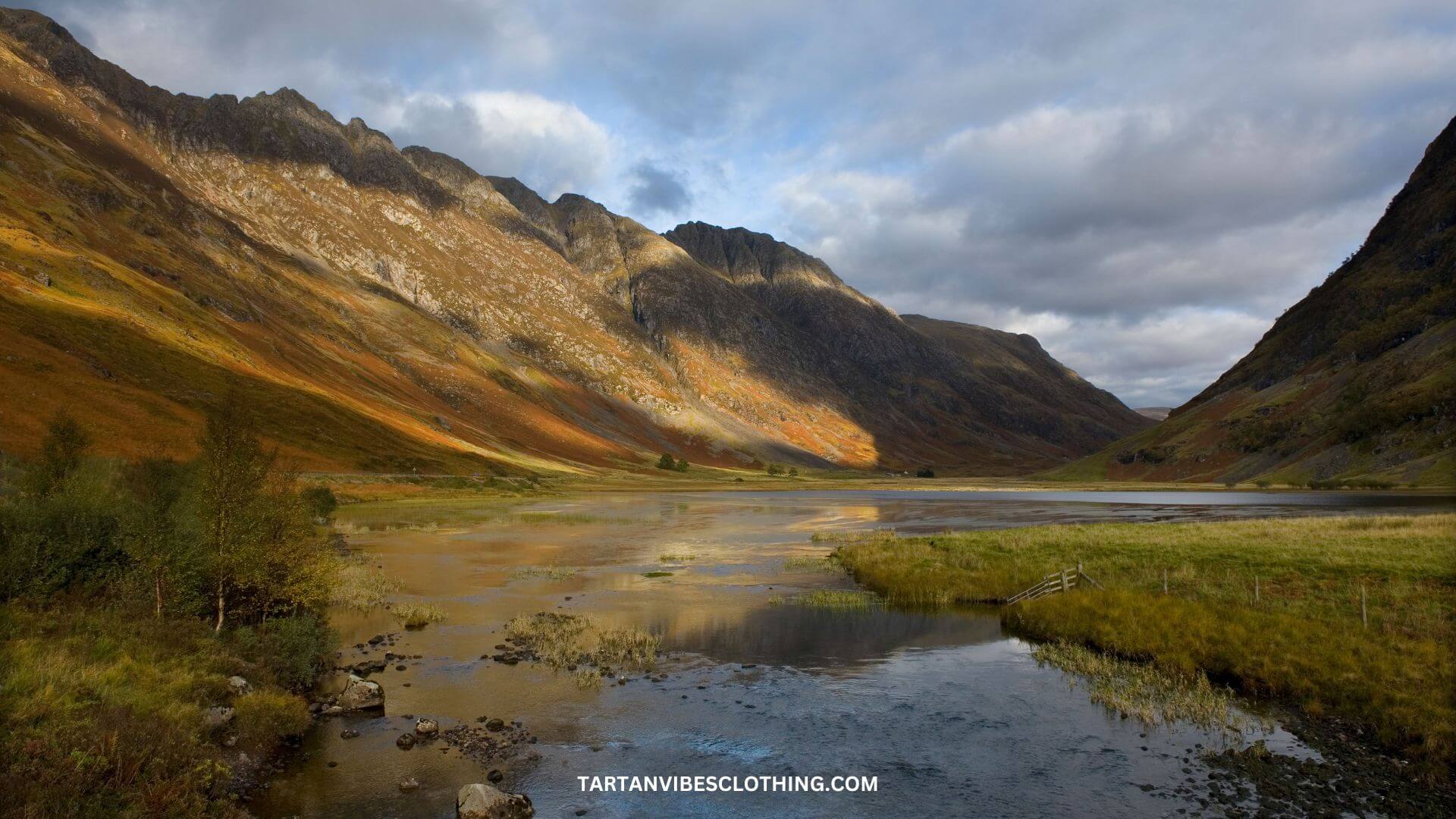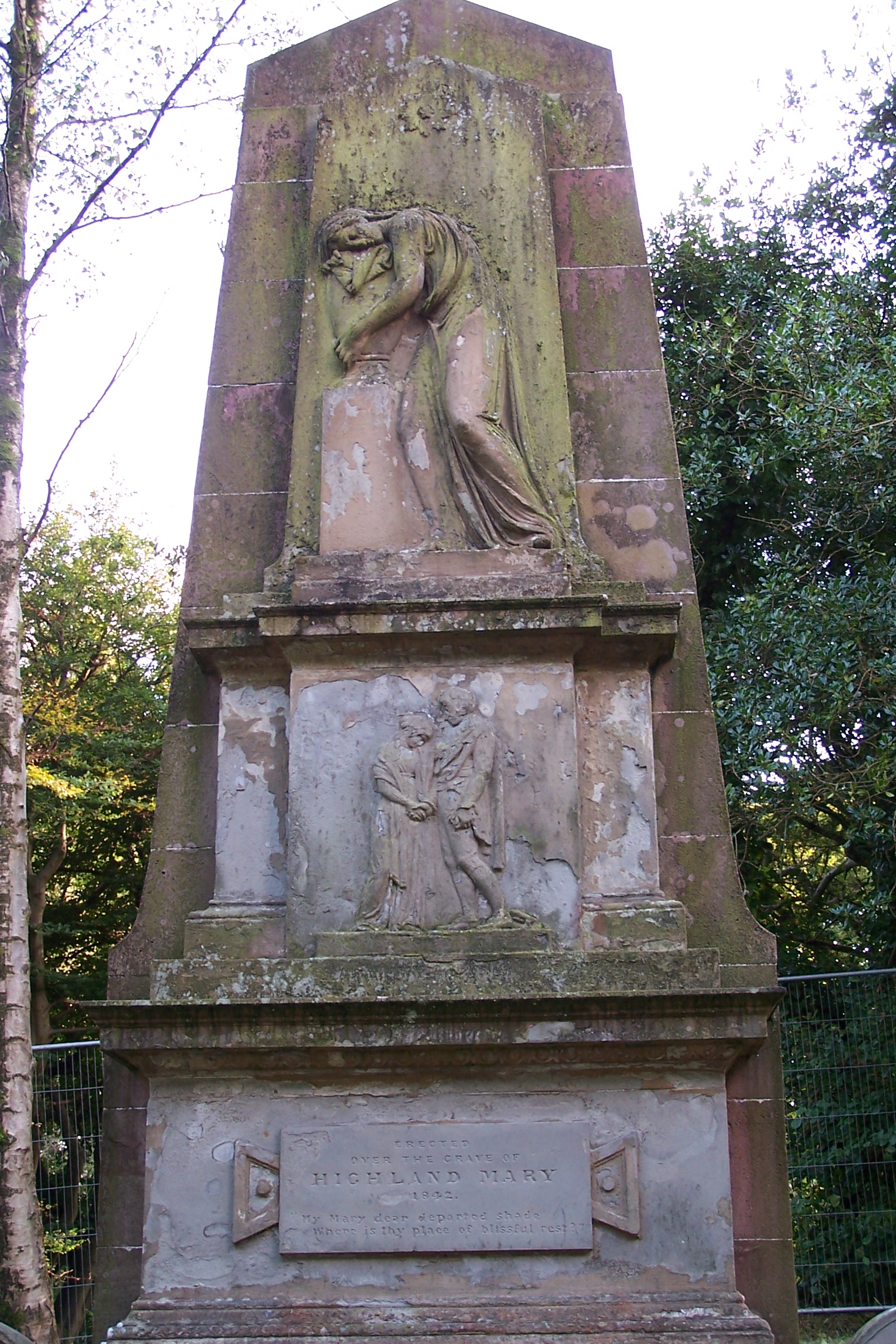Campbell Origin of Name: A Deep Dive into Scottish Heritage
by Teresa Finn on Jul 25, 2024
Table of Content
The Campbell origin of name is a fascinating story revealing a deep connection to Scotland's history and culture. The surname derives from the Gaelic word "Cambel", meaning "crooked mouth". This unique name, however, does not refer to a physical trait but instead symbolizes the strategic bends in natural landscapes, such as winding rivers or pathways. Such symbolism reflects the Campbell clan's historical ties to Scotland's rugged and dramatic terrain. This article will explore the etymology of the Campbell name, its historical significance, cultural impact, and the lasting legacy of the Campbell clan across generations.
Campbell Name Meaning
Etymology and Geography of Campbell

The etymology of the Campbell surname, derived from the Gaelic term "Caimbeul" meaning "crooked mouth", provides an intriguing look into the clan's historical connection to Scotland's rugged landscapes. This name, formed from "cam" (crooked or bent) and "beul" (mouth), likely describes geographical features such as winding rivers and curving paths. This connection underscores the Campbell clan's relationship with their land, where such natural formations were common. These elements symbolize the clan's adaptability and resilience, embodying their ability to thrive in diverse environments and circumstances. Such characteristics made the Campbell name a fitting emblem for a family that played a significant role in Scottish history, choosing locations that mirrored their symbolic identity. In many cultures, surnames reflect geographical features, and the Campbell name is no exception. This geographical connection underscores the importance of place in shaping identity and heritage.
Symbolic Interpretation
Origin of Campbell Surname
The Campbell surname, one of the most notable in Scottish history, originated in the 12th century from the influential Gaelic Clan Campbell. The clan, also known as Clan MacCailein in Gaelic, rose to prominence in the western highlands of Scotland, playing a pivotal role in the nation's turbulent history. At its heart, Gilleasbuig mac Colla, the Chieftain of Argyll, was renowned for his military prowess and political acumen. His leadership marked the establishment of the Campbells as a formidable force known for their strategic alliances and territorial dominance. This lineage traces back even further to the House of Lorne and ultimately to the Dalriada, a powerful Irish kingdom, emphasizing the clan's deep Celtic roots. This ancient connection underscores the enduring legacy of the Campbells across the British Isles, intertwining with the broader narrative of Celtic history.
History of Campbell Family Name
Medieval Era and Rise to Prominence
The Campbell surname became synonymous with power and influence during the Middle Ages. The clan's prominence was marked by strategic marriages, alliances, and decisive military engagements that expanded their territory and solidified their status within Scottish society. One of the critical historical events that highlighted the Campbell clan's military prowess was their involvement in the Wars of Scottish Independence (1296-1357).
During this period, the Campbells supported Robert the Bruce in his quest for Scottish independence, solidifying their reputation as fierce warriors and loyal allies. Their actions were instrumental in securing Bruce's victory at the Battle of Bannockburn in 1314, a turning point in the fight against English domination. By supporting Robert the Bruce's claim to the throne, the Campbells gained favor with the Crown, further enhancing their reputation and standing among other clans.

In the late 14th century, the Campbells began consolidating their power, becoming influential landowners in Argyll and surrounding regions. By the 15th century, they had established themselves as one of the most powerful clans in Scotland. This loyalty to the monarchy became a defining characteristic of the Campbell lineage, setting them apart from rival clans. Their ability to navigate the complex dynamics of Scottish politics allowed them to maintain and even increase their influence over time. This period also saw the Campbells holding significant positions in the Scottish Parliament, contributing to shaping the nation's political landscape.
Clan Rivalries and Alliances
The Campbell - MacGregor Rivalry
One of the most notable rivalries was with the MacGregors, stemming from intense territorial disputes. The Campbell-MacGregor feud began in the late 16th and early 17th centuries, marked by violent confrontations. A significant episode was the Massacre of Glen Coe in 1692, where the Campbells were accused of betraying the MacDonalds of Glencoe, allies of the MacGregors. This event highlighted the volatile nature of clan politics and the lengths the Campbells would go to assert their dominance.

The Battle of Harlaw and Campbell - MacDonald Alliance
Despite such rivalries, the Campbells were skilled at forming alliances to bolster their influence. A key example is their alliance with Clan MacDonald during the Battle of Harlaw in 1411. This battle was pivotal between the forces of Donald of Islay, Lord of the Isles, and the Earl of Mar, representing the Scottish Crown. The Campbell-McDonald alliance was a military maneuver and a calculated political strategy. By joining forces, the Campbells could leverage MacDonald's maritime power to secure their western territories and showcase their strategic adeptness in Scottish clan politics.

The Campbell - Lamont Conflict
Another significant rivalry was with Clan Lamont, culminating in the Dunoon Massacre of 1646. The Campbells besieged Lamont's castles, leading to a brutal slaughter that decimated the Lamont leadership. This conflict, rooted in land disputes, further cemented the Campbells' reputation as formidable power brokers in the Highlands.

Impact on Social Standing and Political Strategies
The Campbell clan's strategic management of rivalries and alliances significantly impacted their social standing and political strategies. The Campbells enhanced their reputation as skilled diplomats and formidable warriors by cultivating relationships with neighboring clans. Their loyalty to the Scottish Crown often earned them titles and lands, increasing their wealth and influence. However, this loyalty also created conflicts with clans supporting rival claimants, complicating their alliances.
The Campbells adeptly balanced loyalty to the Crown with pragmatic alliances, maintaining a dominant position in Scottish society while adapting to political changes. Their ability to forge necessary alliances contributed to their enduring legacy. Despite differing allegiances during the Jacobite Risings, the Campbells and MacDonalds eventually cooperated, recognizing mutual benefits in the post-Culloden era. This strategic adaptability showcases the Campbells' understanding and capacity to evolve.
Campbell Clan in Scotland
Geographic Distribution
Cultural Traditions
The Campbell clan has maintained a rich tapestry of cultural traditions that reflect their heritage. Traditional music, dance, and storytelling play a significant role in preserving the clan's identity. The distinctive Campbell tartan, characterized by its green and blue hues, symbolizes pride and unity among clan members. Clan gatherings and events like Highland games allow Campbells to celebrate their shared history and strengthen familial bonds.
Modern-Day Clan Activities
In contemporary times, the Campbell clan continues engaging in activities to promote their heritage and foster connections among members. Clan Campbell societies and organizations exist worldwide, providing a platform for Campbells to connect, share stories, and participate in cultural events. These gatherings not only celebrate the clan's history but also create a sense of belonging and community among descendants of the Campbell family name.

Campbell Last Name: Migration and Diaspora
Migration Patterns
The Campbell surname has a rich migration history, particularly from Scotland to other parts of the world. During the 18th and 19th centuries, many Scots, including members of the Campbell clan, sought new opportunities abroad due to economic hardships and political unrest. The promise of land and prosperity in North America, Australia, and New Zealand attracted countless families seeking a better life.
Factors Driving Migration
Where in the World is the CAMPBELL Surname Found?
Global Distribution
Concentration in Scotland
Campbell Diaspora
Famous People with the Last Name Campbell
Notable Historical Figures with the Campbell Name
- Colin Campbell (1433-1493): Known as Colin of Argyll, he played a crucial role in expanding the Campbell territories and strengthening alliances with other clans. Colin Campbell was instrumental in establishing the Campbells' political influence during the 15th century.
- Archibald Campbell (1607-1661): A prominent figure in Scottish history, Archibald Campbell, the 8th Earl of Argyll, was a crucial leader in the Covenanting movement during the Scottish Wars of the Three Kingdoms. His leadership and political acumen were pivotal in shaping Scotland’s religious and political landscape.

- John Campbell (1678-1743): Known as the 2nd Duke of Argyll, John Campbell served as a general in the British Army and was a significant political leader. His military achievements and diplomatic skills were instrumental in maintaining the Campbell clan’s influence during the 18th century.

- Mary Campbell (1700-1760): Mary Campbell, a notable member of the Campbell family, was known for her charitable work and contributions to Scottish society. Her efforts in promoting education and supporting the arts left a lasting impact on the community.

Notable Modern Figures with the Campbell Name
Kim Campbell
Profession: Politician
Achievements: Kim Campbell made history as Canada's first female Prime Minister, serving in 1993. Her groundbreaking leadership and contributions to Canadian politics have cemented her legacy as a trailblazer in government.

Naomi Campbell
Profession: Supermodel
Achievements: Naomi Campbell is a British supermodel and actress renowned for her significant impact on the fashion industry. Throughout her career spanning several decades, she has broken barriers and set new standards for diversity and representation in modeling.

Glen Campbell
Profession: Musician
Achievements: An iconic American singer, songwriter, and actor, Glen Campbell achieved widespread fame with hits like "Rhinestone Cowboy" and "Wichita Lineman". His contributions to country and pop music have left an indelible mark on the entertainment industry.
Campbell Scott
Profession: Actor and Director
Achievements: Campbell Scott is an accomplished actor and filmmaker known for his roles in films such as Dying Young and The Amazing Spider-Man. His work in both acting and directing has earned him critical acclaim and recognition in the film industry.

Sir Malcolm Campbell
Profession: Race Car Driver
Achievements: Sir Malcolm Campbell was a pioneering British race car driver known for breaking multiple world speed records on land and water. His achievements in motorsport are celebrated worldwide, inspiring generations of racing enthusiasts.

Cultural Impact of the Campbell Name
Representation in Literature and Media
Role in Shaping Cultural Narratives
Influence on Contemporary Culture
🎁 Explore the timeless traditions of the Clan Campbell through our collection of tartan products on our website. And bring a piece of the clan's history into your present.
Conclusion
Frequently Asked Questions
Is the name Campbell Irish or Scottish?
Campbell is a Scottish surname (where it is still the 7th most prevalent surname), also found in Ireland due to the colonization of the island by Scots in the 1600s and 1700s.
What nationality is Campbell?
Campbell is a gender-neutral name of Scottish and Irish origin. Traditionally used as a last name, it translates to “crooked or wry mouth.” So many celebrities have held this unique name, from Scream star Neve Campbell to iconic supermodel Naomi Campbell.
Is Campbell a white last name?
The most commonly-observed ancestry found in people with the surname Campbell is British & Irish, which comprises 55.0% of all ancestry found in people with the surname. The next two most common ancestries are French & German (21.1%) and Eastern European (3.5%).
What does the name Campbell mean?
The name Campbell translates to "crooked mouth" in Gaelic. It symbolizes the strategic adaptability of the Campbell clan, much like winding rivers or pathways in nature. This meaning is tied to the clan's historical role in navigating Scotland's complex political landscape and its ability to thrive in challenging environments.
Where is the Campbell surname most commonly found?
The Campbell surname is most commonly found in Scotland, especially in the Argyll and Inverness-shire regions. Internationally, it is prevalent in countries like Canada, Australia, New Zealand, and the United States, reflecting historical migration patterns and the global diaspora of the Campbell clan.












